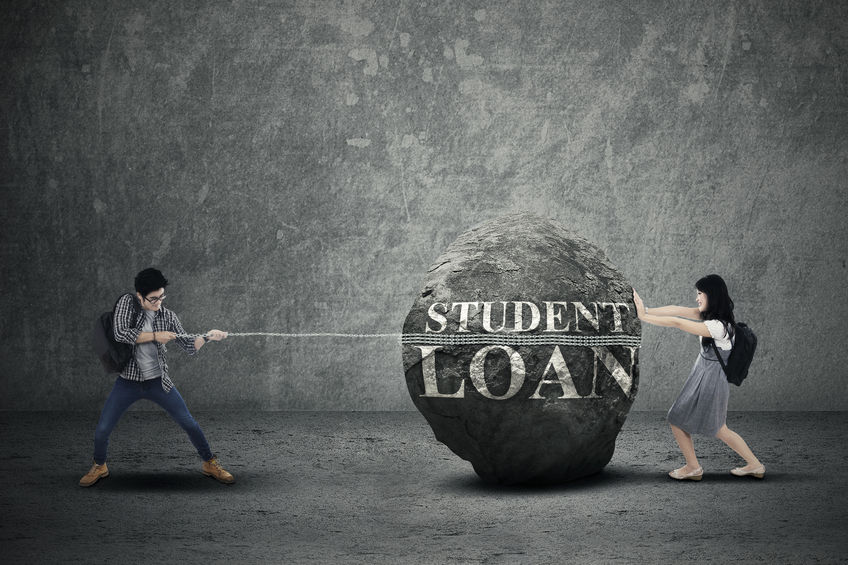
Getting a college education is seen as a path towards a better life. This is particularly true when, on average, college graduates earn more than $20,000 annually when compared to high school graduates. However, many students have to take out a student loan to realize their college aspirations. Hence, recent college graduates soon realize the heavy burden of student debt hanging on their shoulders. In the United States, the average student loan debt for recent graduates is more than $30,000. Unsurprisingly, for most people, a significant part of their monthly income goes into paying off their student loans for decades to come. This experience can quickly become stressful and burdensome. That’s why we will explore tips to help you pay off your student loan on time.
- Pay More Than The Minimum Payment
If there’s one piece of advice you should take from this post, this is it! The truth is if you make only the minimum monthly payments, it will not only take you longer to pay, but you’ll pay way more to cover the accrued interest.
For instance, imagine you have a loan debt of $30,000 at a 6.8 interest rate. If you pay only a minimum monthly payment of $345, it’ll take 10 years to pay off your debt, and you’ll pay $11,429 in interest. However, if you make a monthly payment of $600, you’ll clear off your debt in 5 years, and you’ll pay only $5,371 in interest.
However, there’s a caveat with prepayment. Most student loan servicers will apply your extra monthly amount to the next month’s payment. This wouldn’t help to pay off your loan faster. That’s why you have to instruct your servicers – either by mail, phone, or online – to apply your overpayments towards your current balance. This way, you will cut through your principal more quickly and pay off your loan sooner.
- Consider Refinancing Your Student Loan
Chances are, your student loan is split among multiple loan servicers. By refinancing your student loan, you can combine these multiple loans into a single private loan, ideally at a more favorable rate. It would help if you opted for a new loan with a lower interest rate. Similarly, you can opt to shorten the repayment duration. This approach makes sense if you have a steady, well-paying job. Doing so will help you pay your debt faster and save money on interest.
Before opting for refinancing, you want to ensure that you have a good credit score (greater than 600), a steady income source, and a debt-to-income ratio below 40%.
- Create a Budget and Stick to It
When you fail to create a budget, it’s only natural that you spend on things you don’t need – maybe it’s a fancy meal or a luxury shoe or bag. That’s the main reason most people never live within their means.
But when you clearly state your monthly expenses, you can easily identify and cut off unnecessary expenses. Doing so will help you free up extra money that you can use to pay down your student loans. That aside, budgeting is an invaluable habit to develop as it will help you save towards your future financial goals.
- Increase Your Income With a Side Hustle
There’s a limit to the amount you can squeeze out from your current income. At some point, earning more money might be the only way to pay your student loan faster. Thankfully, several opportunities are available, including driving an Uber, walking dogs, freelancing, and babysitting, among many others.
Similarly, improving your qualifications so you can earn more is also a viable option. However, when that promotion comes, you need to develop the discipline to use the extra income towards paying off your debt. Again, that’s why budgeting is non-negotiable.
- Don’t Rely on Student Loan Forgiveness.
You’ve probably heard of student loan forgiveness programs. They do exist! However, there are several requirements to be met to be eligible – for instance, being a public servant for 10 years. Even if you meet these requirements, loan forgiveness isn’t guaranteed. To give you a bit of perspective, of over 100,000 loan forgiveness applications received as of June 2019, only about 1,000 were approved. That’s 1%! The sad news is that the number of rejected applications is steadily rising each year.
If you’re willing to work in specific occupations and adhere to the eligibility requirements for student loan forgiveness, you might be able to get a huge chunk of your debt forgiven. While there’s no harm in applying for loan forgiveness, that shouldn’t be your only strategy!
Wrap Up
When it comes to paying off student loans, no shortcut can help wipe off your debt in less than one month. However, if you follow the tips suggested, you’d pay off your loan sooner than expected. But note that it requires sacrifice, dedication, and patience.
We understand debt and loans can be a complicated topic, and we’re here to help. Contact us today for more information.

